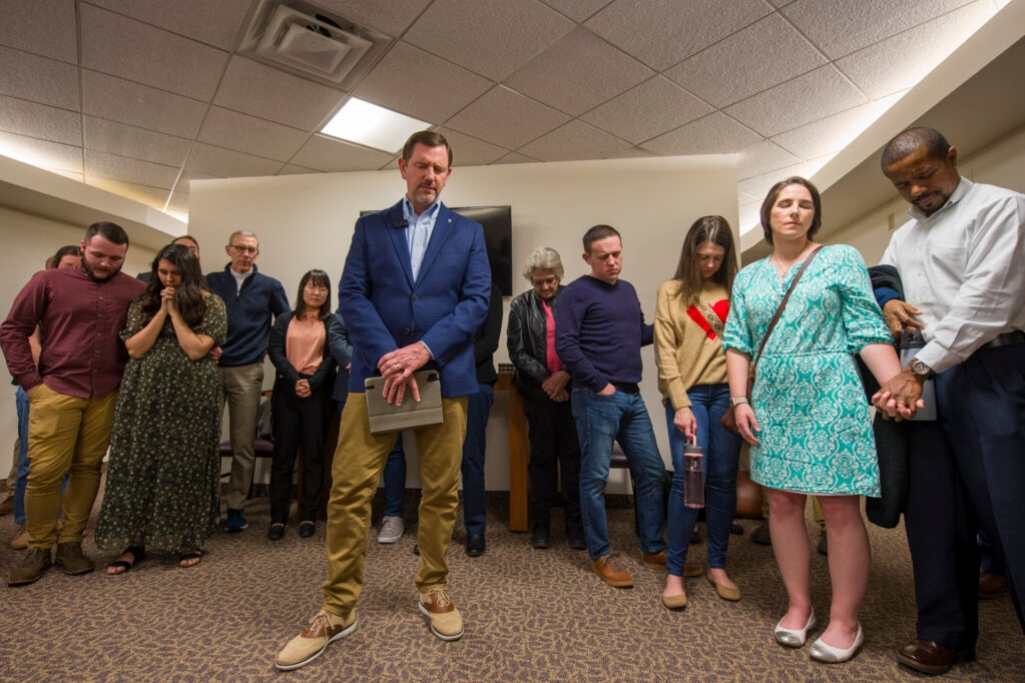
Nik and Ruth Ripken.
LOUISVILLE , Ky. (BP) — As retired International Mission Board (IMB) missionaries Nik and Ruth Ripken speak in a variety of small group settings, churches and conferences, they desire to share practical insights with prospective missionaries about what to expect mentally, physically and spiritually.
They especially want to prepare people for those areas where believers face extreme persecution and suffering. That’s a story they know all too well.
Originally from Kentucky, the Ripkens were appointed by the then-Foreign Mission Board (now International Mission Board) in August 1983. Through the course of their ministry, they lived in seven countries: Malawi, South Africa, Kenya, Somalia, Germany, Ethiopia and Jordan.
Ripken’s 2013 best-selling book “The Insanity of God” chronicles the hardship his family endured on the field but also shares the stories of dozens of Christians living in persecution around the world. Ripken traveled to some of the world’s hardest places to find those stories.
He and Ruth now say they would like to have done more.
‘Worth it’
“We wish we could have gone earlier in our lives, and we wish we could’ve stayed longer,” Ripken said.
When people ask why, their response remains steadfast — Jesus is worth it.
“If I could condense down approximately 650 interviews in 72 countries, this is what I would dare speak on behalf of believers in persecution,” he said. “Believers in persecution are immensely grateful for our prayers. They often say that the one debt they can never repay the church in the West is the debt of praying for them during their suffering and persecution. Yet they ask us, ‘Do not give up in freedom what we never give up in persecution,’ and that is our witness to the life, death and resurrection of Jesus Christ.”
Despite the dangers of missions in hard places, Ripken believes those at home have the worst part.
“First of all, we would say to those who send — churches, parents, grandparents and siblings — that you are the ones who have the hardest job,” he said.
“Which is harder, dying on a cross or sending your only Son to die on the cross?” he asked. “It’s in the nature of God to be both a sender and one who goes. We never understood until recently how hard it is to be a sender. We should’ve shown more grace to the families and churches that send. Obediently, often with tears flowing endlessly, those who send watch their children and grandchildren board planes to go to the ends of the earth.”
And hardship is to be expected.
“In the Bible, persecution is normal,” he said. “As we look at believers in persecution, we feel pity for them and often want to use money and rescue as a way to alleviate and solve their suffering and persecution. They say that their persecution is like the sun coming up in the East. What was true in the Bible is true for them. In John 15:20, Jesus tells His followers to ‘remember the word that I said to you: a servant is not greater than his master. If they persecuted me, they will also persecute you.’”
Telling their stories
The couple’s research on the subject and personal accounts have resulted in three books: “The Insanity of God,” “The Insanity of Obedience” and the 90-day devotional “The Insanity of Sacrifice.” In 2016, The “Insanity of God” was made into a feature film from Lifeway Films and cosponsored by the IMB.
Next year marks the film’s 10th anniversary, and the Ripkens have been greatly impacted by the testimonies they have received in response to the book and the film.
“Ruth and I continue to be amazed and humbled by the response of those who have read the ‘Insanity of God’ or have watched the documentary based upon the book,” Ripken said. “Many say that, because of the book or movie, they have committed themselves to both going and witnessing across the street and across the oceans — anywhere Jesus commands them to go. We talked with a 91-year-old man who had read the book and promised God that he would give a gospel witness to at least one person every day. Years later, before going to heaven, he kept that promise.
“Churches have used the ‘Insanity of God’ movie and rented out part of movie theaters. They invite their neighbors and church members to watch the movie together, combining witness and worship within that movie theater — all for the price of a bag of popcorn and a soda.
“The actor who played myself in the movie was a pastor’s son, whose faith was renewed by the contents of the movie. An ethnic Chinese man who was used in the movie as an interpreter stated that his father had been persecuted as a leader of a house church in South Asia.
“A clear gospel witness was given to the 77 Ukrainians and Russians who made up the actors in one of the prison scenes. Witness and discipleship continue among them. Often we meet university, college, seminary students who are preparing for the mission field who share what precipitated their journey was either reading the book or watching the movie.”
Today, the Ripkens are frequent speakers at events, especially ones designed to equip missionaries. They also provide teaching tools and trainings on their website, www.nikripken.com.
The website features their latest project, “Insanity Unleashed,” which is a video-based, multihour resource focused on how to do effective ministry in places of intense persecution. “Insanity Unleashed” provides a rare, in-depth look at the struggles and personal accounts of the depths of persecution that believers face around the globe for the sake of the gospel, reminding believers that Jesus is worth it.
“In the depths of our hearts, we wish that those who had mentored us had insisted that we read the Bible in present, active tense,” Ripken noted. “The Bible is not only a clear authoritative record of what God has done, but it is also a clear authoritative record of what God is doing today. In essence, everything that God has recorded in the Bible, God is still doing. He is a present, active tense God.
“Secondly, we wish that we had gone with greater humility — understanding that going across the street and across the oceans was as much God’s investment in us as it was our investment and others. Neglecting to cross the street and to cross the oceans with the good news of Jesus Christ is to miss much that Almighty God has for all of us.
“Ruth often says that we need to go humbly and needy to the peoples of the earth. We have seen multitudes come to Christ in East Africa. Conversely, we’ve seen most of the believers in Somalia killed for their faith in Jesus. We wish that we had understood what it meant to be New Testament servants of God within an Old Testament environment.”
The fruit of persecution
Their quest for understanding began after the death of their son, Timothy, in Nairobi, Kenya, on Easter Sunday 1997. Timothy died at age 16 from cardiac arrest brought on by an asthma attack.
Describing the day of Timothy’s death in “The Insanity of God,” Ripken wrote, “I was overwhelmed by my own loss. Ruth used the word ‘resurrection’ that night; I was fixed on the crucifixion. The pain was unbearable.”
Later, when he interviewed believers in hard places, he could relate to their stories.
“Believers in persecution ask us not to feel sorry for them,” Ripken said. “Often they have said to us, ‘Never have we felt so close to Jesus as when we were persecuted for our faith.’
“What would be a modern-day response if we discovered that our Joseph had been arrested and thrown into Pharaoh‘s prison?” he asked and then answered his own question — our response would be to bring the full force of our might to bear in demanding Joseph’s release.
“To rescue Joseph from Pharaoh’s prison is to condemn the Egyptians and the Jews in Egypt to die of starvation, as there would be no one left in Egypt to interpret Pharaoh’s dream,” he said.
Ripken noted the dividing line between daily, serious persecution and little or no persecution is being a witness.
“If we give our lives to Jesus, are baptized and then keep our witness to ourselves, then persecution is unlikely,” he acknowledged. “The reason there’s little persecution in the West is because, sadly, most professed Christians have not shared Christ with even one person. The question we should ask is not why are they persecuted, but why are we not persecuted?”
Ripken said one of the greatest lessons he’s learned from believers in persecution has been to see himself in the Bible’s narrative.
“When we read the Bible, we are to ask ourselves, ‘Who am I in this story? Where’s my family in this story? What role would my country and culture of origin play in this biblical narrative?’
“That’s why our ministry is committed to providing biblical resources, as defined by believers in persecution, that prepare us to finish the task. There’s approximately 3 billion souls on earth of whom 63% are oral communicators, 6% Deaf in each people group, with 95 to 99% of all these people having no access to eternal life.
“Nik Ripken Ministries believes that the worst persecution on earth is to have no access to the kingdom of God.”


